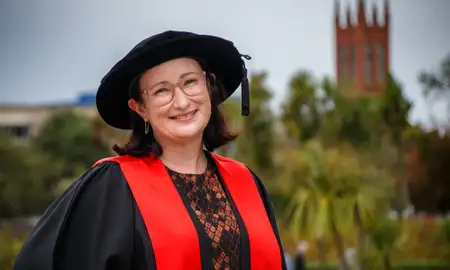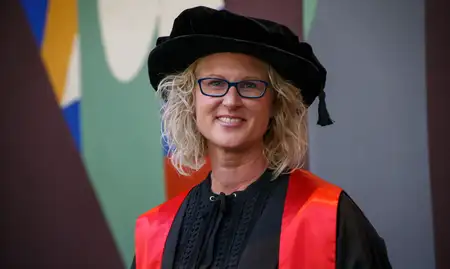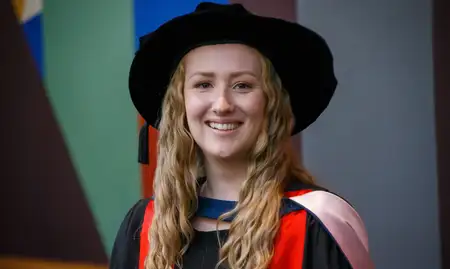
Dr Lizzie Zheng.
So, for her PhD, Dr Zheng sought to better understand the female physiological responses to heat stress from different perspectives. This research is particularly important given the increasing proportion of the global population who are exposed to frequent heat events as a result of global warming.
Her research involved three studies. The first investigated whether additional heat stress impacts females’ iron metabolism around exercise and how this interacts with the menstrual cycle.
“It turns out that the human body is such a smart machine that when participants were allowed to pace themselves, additional heat stress didn’t have an additional detrimental effect on their iron metabolism,” she explains.
The second study evaluated the reliability of a pre-loaded, self-paced trial protocol when used by females with different reproductive hormone profiles in different environmental conditions.
The last study attempted to predict female athletes’ core temperature during exercise in the heat using their ovarian hormone levels.
Taken together, Dr Zheng says her research provides a reliable protocol for sports scientists to monitor female athletes’ performance.
“This thesis deepens our understanding of females’ physiological responses and testing norms for current sport science practices. It details iron metabolism responses when exposed to exercise-heat stress, explains the role of ovarian hormones regarding exertional heat strain and adds test-retest norms specific to athletic women to current literature.”
Dr Zheng was born in Kaifeng, a small historical city in Henan province, China. She says she has always been fascinated by the way the human body works.
“Before I did postgraduate studies and my PhD at Massey, I did a Bachelor of Clinical Medicine at Henan University in China. Amongst all the papers I did, I was most fascinated by physiology. I was really interested in how the human body works.
“It is the most sophisticated machine in the world and that’s why I decided to study human physiology at the very beginning. The human body is so good at keeping homeostatis [self-regulating], which I found to especially be the case when I looked at iron metabolism.”
The 29-year-old lives in Wellington, working as a centre manager at the Centre for Translational Research, for the University of Otago, Wellington.
Dr Zheng says she is forever grateful to have had the support of her family throughout her study journey, particularly as she’s an only child who chose to live and study overseas.
She has recently been back to China to visit family, the first time she has been able to in three years due to the pandemic.
Related news
Belonging and gender equity in Aotearoa New Zealand community football organisations
After working in football marketing and communications roles for six years, Dr Alida Shanks noticed that there was a lack of action on inequity in sports organisations.

PhD research explores lameness in dairy cows
Lameness in dairy cows is a major health, welfare, productivity, and economic issue worldwide. Even though dairy cattle are an important part of the agricultural sector of New Zealand and Sri Lanka, research on dairy cattle lameness is lacking in both countries.

PhD research shows link between poor sleep and perinatal depression
Healthy sleep is vital to health and wellbeing at all life stages. But for many women, achieving restorative and satisfying sleep consistently throughout pregnancy and the early childhood years is a challenge.

Highlighting narratives of an epidemic through the pandemic
Sexual violence has long been a growing epidemic in Aotearoa New Zealand but became exacerbated with the arrival of COVID-19, particularly for people within socially marginalised groups.
